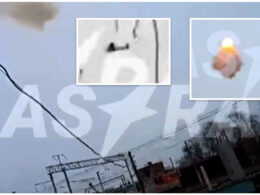The Institute for the Study of War (ISW) reports that the financial connections that Russia has with neighboring countries are still being impacted by US sanctions. Elkart, the official payment system of Kyrgyzstan, declared on April 2 that it would no longer accept transactions made through the Russian “Mir” payment system in order to avoid secondary sanctions.
As Russia wages its war against Ukraine, Western countries continue to impose more and more sanctions on Russia, which affect large parts of the economy and individuals and companies. Since the start of the full-scale invasion in February 2022, more than 16.500 sanctions have been imposed on Russia, as reported by the BBC.
Elkart’s operator Interbank Processing Center stated that Elkart would stop processing all transactions with the “Mir” payment system starting on April 5 since the US sanctioned “Mir” system’s operator, the National Payment Card System Joint Stock Company, in February 2024.
Ten of 23 Kyrgyz commercial banks completely or partially suspended their use of the “Mir” payment system in October 2022 after the US Department of the Treasury reported that it would impose sanctions on financial institutions that enter contracts with the National Payment Card System.
Kyrgyzstan is not the first country where the impact of Western sanctions on Russia are having an impact. ISW recently reported that several Kazakh banks and Armenia’s Central Bank also suspended the use of Mir payment systems to prevent secondary sanctions.
Regardless, Russia still finds ways to generate income, primarily through its oil industry. According to the Atlantic Council, a US think tank, Russia has managed to sell oil abroad for more than the G7’s price cap, having increased its supply towards countries such as India and China. In addition, Russia is also able to import many sanctioned Western goods by buying them through countries such as Kazakhstan, Belarus and Georgia, through various means.
In order to provide a counter against Russian income from oil, Ukraine has increased offensive operations against Russia’s oil infrastructure, showing that it is able to strike targets long distances from the frontlines.
- Media: US urges companies to halt shipments to 600 entities over concerns of supporting Kremlin’s war machine
- Bloomberg: Russian oil exports finally facing real sanctions squeeze
- Bloomberg: EU leaders to call for new sanctions on Belarus, North Korea, Iran
- Ukraine calls on FATF to impose stronger measures on Russia amid escalating threats to global financial system





